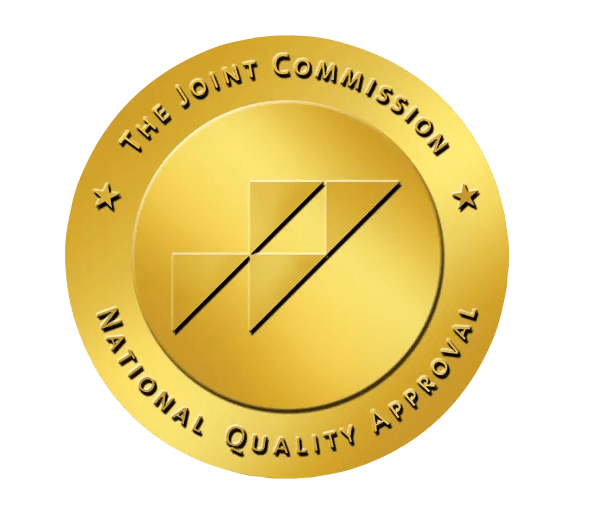Does Your Spouse Need Rehab?
You live with your spouse. You see them every day. However, that doesn’t necessarily mean it’s easy for you to recognize or admit they have a problem with alcohol or drugs. The good news is that you are in a good position to discover their addiction. If you can help your spouse seek treatment before the problem grows out of control, you may be able to save their life.
Your spouse may need to visit a rehab treatment center if they:
- Hide their drug or alcohol use
- Are not acting like themselves
- Spend a lot of money on drugs or alcohol
- Show physical signs of substance abuse
- Have health problems from drugs or alcohol
- Have withdrawal symptoms
A person doesn’t need to show all these signs to need help. Even just one of these can indicate the beginning of a problem. We will give you more information on each of these signs below.
Hiding Drug or Alcohol Use
Your spouse may occasionally drink alcohol, or they may take medication prescribed by a doctor for a legitimate health reason. Alcohol and drug use becomes problematic when a person consumes them excessively, loses control, or hides their consumption from their loved ones.
Examples of hiding alcohol would include finding empty alcohol bottles hidden around the house and coming home smelling of alcohol, yet denying they had anything to drink.
You may find drug paraphernalia indicating illicit drug use. Common paraphernalia for drugs like cocaine and heroin may include pipes or foil for smoking, straws or rolled paper for snorting, or even syringes for injection. You may even find unmarked pill bottles or multiple prescription bottles from different doctors.
Hiding alcohol or drug use is a sign that your loved one knows they have a problem, or they are hoping you will not notice it. Your spouse may want to quit or cut back but are unable to because they have become addicted. This is when they need to visit a treatment center.
Your Spouse Isn’t Acting Like Themselves
Your spouse may have previously been a reliable person, had hobbies, and close friends. However, that may not be the case anymore. Substance abuse causes a change in many people and what used to be important to them is no longer seen as that. They may have lost interest in their hobbies and social activities, breaking previous social engagements, or even disappearing without explanation. You may not know what they are doing, or you may notice a change in their friend group.
As addiction overcomes your spouse’s life, it may become more evident that something is wrong. Their work performance is likely to suffer, possibly resulting in job loss. They may try to hide that from you as well but hiding a lack of income is difficult and won’t go unnoticed for long – especially when money is being spent on alcohol or drugs.
Spending Money on Alcohol or Drugs
Addiction can change the way a person’s brain works, causing them to crave an abused substance and take it without regard to the consequences it brings. Drugs and alcohol cause the body to build a tolerance. This means the person needs more of the substance over time to achieve the same euphoric or sedating effect. The more they take, the more they have to buy. This can get very expensive.
To keep up with the cost of drugs and alcohol, your spouse may borrow or steal money from friends or family. They might lie about why they need the money and they constantly need it. If you share a bank account with your spouse, you may be able to tell how much they are spending on their addiction. If money seems to disappear or it doesn’t make it into the account, that may be another red flag.
Physical Signs of Substance Abuse
Because you likely spend more time with your spouse than anyone else, you may be the first one to notice physical signs of substance abuse. Signs can vary based on the type of drug and how it is abused. Signs of substance abuse include:
- Intensive sedation
- Excessive energy
- Twitching or tremors
- Flushed skin
- Dilated or pinpoint pupils
- Itching and skin sores
- Significant weight loss
- Scars (from drug injection)
- Nosebleeds (from snorting drugs)
- Burns (from snorting drugs)
- Smoker’s cough
- “Crashing” or sleeping for long periods of time
Your spouse may try to hide these symptoms by wearing long sleeves to cover needle marks or blaming a cough on seasonal allergies or illnesses. If you notice other signs of addiction, you should think twice before dismissing it as insignificant.
Heath Problems from Drugs or Alcohol
Prolonged alcohol and drug abuse is hard on a person’s body. It weakens the immune system and can lead to serious health problems. Substance abuse can also be damaging to your loved one’s mental health. Some drugs can cause paranoia, hallucinations, and even psychosis. Other drugs can lead to cognitive impairment and memory problems.
When the adverse health effects of substance abuse are apparent, but your spouse continues to use them, it is time to go to rehab. Addiction is very difficult to overcome alone. The negative consequences will continue to grow worse if your spouse does not change their lifestyle.
They Show Withdrawal Symptoms
When people abuse drugs or alcohol, they develop a physical dependence – meaning their body will react adversely if they cut back or stop using the substance. Physical withdrawal symptoms may include:
- Nausea and vomiting
- Twitching, shaking, or even tremors
- Sweating
- Diarrhea
- Insomnia
- Seizures
This can occur with prescribed use of certain medications. This does not necessarily mean that your spouse needs to go to rehab, but they will need to safely taper off these drugs with the help of their doctor. However, physical dependence often comes with addiction and is more likely to occur with prolonged use of drugs or alcohol. Physical withdrawal symptoms indicate there is a bigger problem and will likely come with other signs that your spouse needs to go to rehab.
Helping Your Spouse Find a Treatment Center
If you believe your spouse needs to go to rehab, it is very important to approach the subject in a loving and supportive way. If they agree to seek treatment, you can help them find a treatment program that is suited to their needs.
At Holland Pathways , we offer alcohol and drug rehab, detoxification, inpatient and outpatient treatment and private sobriety coaching. We are here to help and provide support throughout the recovery process.












